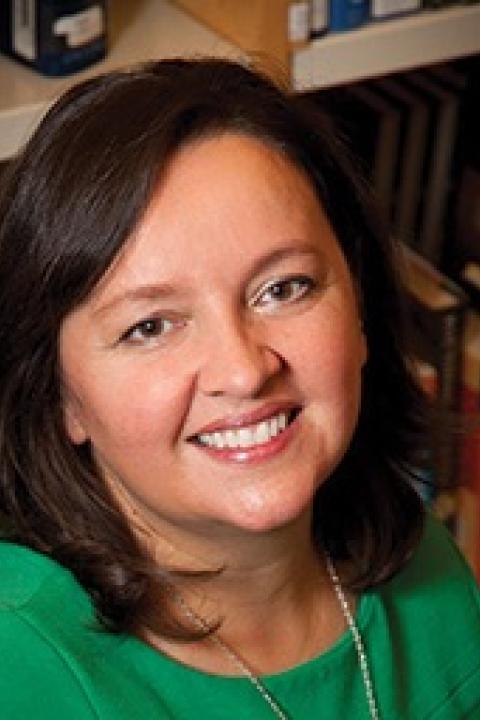Innovate. Investigate. Inspire.
Curriculum & Requirements
Curriculum Requirements
| Course | Title | Credits |
|---|---|---|
| Doctoral Core Component | ||
| EP 8000 | Emerging Perspectives on Learning and Development | 3 |
| EP 8011 | Critical Inquiry in Research | 3 |
| EP 8012 | Research Design in Leadership, Learning and Community | 3 |
| EP 8013 | Applications in Dissertation Research | 3 |
| EP 8014 | Data Analysis in Dissertation Research | 3 |
| EP 8026 | Writing a Literature Review | 3 |
| EP 8030 | Diversity, Ethics, and Social Justice | 3 |
| EP 8820 | Entrepreneurial Externship | 3 |
| Concentration or Specialization | ||
| Complete 27 credits 1 | 27 | |
| CAGS Core | ||
EP 7020 | Collaborative Leadership | |
EP 7030 | Transforming the Educational Agenda | |
EP 7040 | Planning in Education and Human Services | |
EP 7050 | Advanced Mixed Research Methodology | |
EP 7060 | Legal Issues in Policy Making | |
EP 7080 | Ethical Leadership and Decision Making | |
EP 7400 | Conducting a Qualitative Study | |
EP 7404 | Quantitative Methods for Professions | |
| Superintendent Educational Leadership Program | ||
EP 7100 | School Labor Relations, Negotiations and Personnel Management | |
EP 7200 | School Buildings and Transportation | |
EP 7300 | The Superintendency and School District Leadership | |
| General Electives | ||
EP 7090 | Critical Perspectives for Arts Advocacy | |
EP 7110 | Arts and Learning | |
EP 7121 | Designing & Leading Healthy Organizations | |
EP 7130 | Shaping Policies and Practices in Arts Education | |
EP 7210 | Leading Curriculum and Instruction to Transform Schools | |
EP 7215 | Leaders as Professional Developers | |
EP 7400 | Conducting a Qualitative Study | |
| Higher Education Curriculum, Instruction and Administrative Leadership | ||
HD 7000 | Foundations of Higher Education | |
HD 7010 | Legal and Ethical Issues in Higher Education | |
HD 7015 | Special Topics | |
HD 7020 | Collaboration in Higher Education | |
HD 7030 | Higher Education Administration and Organizational Management | |
HD 7040 | Emerging Trends in Higher Education | |
HD 7050 | Coaching Innovative Leaders | |
HD 7060 | Technology Integration for Educational Leaders | |
HD 7070 | Teaching Post-secondary Learners | |
HD 7080 | Curriculum, Instruction, and Assessment | |
HD 7090 | ||
| Dissertation | ||
| EP 8800 | Dissertation Research (Repeatable) | 9 |
| Total Credits | 60 | |
- 1
Students select coursework based on their professional goals, certification needs, and interests. In some instances, career goals may require a degree program in excess of 60 credits; therefore, consultation with an academic advisor prior to taking courses is essential. Course selection must have the approval of the academic advisor and the doctoral program coordinator.
The concentration or specialization component can be fulfilled with courses taken for the student’s Certificate of Advanced Graduate Studies (CAGS) or equivalent program. For example, students may apply courses from any of the Plymouth State University CAGS program options.
Admission Information
Admission to the doctoral program is competitive and open to individuals who possess a master’s degree and at least five years of successful experience in their chosen field along with demonstrated evidence of, or potential for, professional leadership.
Requirements
Admissions requirements for the Doctor of Education programs require the following materials to be submitted through our online application.
Minimum GPA of 3.0 or better
The admissions review team will consider academic history for bachelor’s, master’s and post-master’s coursework.
Official transcripts from all college level coursework
Official transcripts verifying conferral of bachelor’s and other graduate degrees from an accredited institution, along with official transcripts from any/all other colleges and universities attended. Transcripts can be sent electronically to psu-gradadmit@plymouth.edu or mailed to PSU Graduate Admissions, 17 High Street-MSC 52, Plymouth, NH 03264
Three professional recommendations
Professional recommendations must:
- directly address applicant’s candidacy for admission to the doctoral program;
- include a detailed explanation of applicant’s strengths and ability to do research; and
- address applicant’s potential to successfully participate in, and complete, a doctoral program.
current resume
Resumes can be uploaded directly to your online application.
Professional Writing Sample
Applicants may create a writing sample or use a previously created work that has been submitted academically or written for professional reasons. Writing sample must:
- be written within the last two years
- be original and individually written (group projects or papers will not be accepted)
- be clear and well organized with logical progression of ideas;
- include multiple supporting details (literature) with sources cited correctly within the narrative;
- indicate mastery of grammar, usage & mechanics; and
- reveal evidence of appropriate use of APA format.
Statement of interest
The statement of interest/intent must:
- indicate your reasons for applying to the doctoral program;
- describe your preparation and/or readiness for commencing doctoral level coursework; and
- explain why our program is a good fit.
NH Residency Verification Form (NH residents only)
Residents of NH must complete the NH Residency Verification form as part of the application process to receive the in-state tuition rate.
Acceptance to the Summer Cohort - Doctoral Core & Dissertation
Ed.D. Interview Process and Requirements
- In March of each year, the Ed.D. program director will invite doctoral students who have met the minimum of 15 post-master’s credits to participate in the interview process for the upcoming summer cohort.
- There will be a 30 minute individual interview with 4-5 faculty at which time students will be asked to present their Problem of Practice that aligns with their research and dissertation interests. (Please review guidelines for Problem of Practice development in preparation for the on campus interview.)
- There will also be a group interview which will occur shortly after the individual interviews, where students will be evaluated by doctoral faculty.
- Doctoral students will receive notice of their acceptance or denial into the upcoming cohort by the middle of April.
- Starting in the third week of May the first two Ed.D. courses will begin with online pre-assignments and readings.
- Starting on or around July 1, the face to face intensive classes will begin on campus from 9am-4pm for a period of two weeks. On campus classes will end in the third week of July with ongoing assignments till the second week of August at which time classes will end for the summer. Dates/schedule subject to change.
- Fall/Spring classes be offered as Saturday intensive classes from 9am-4pm throughout the year. Dates/schedule subject to change.
Deadlines
Applications are accepted for the fall, spring, and summer semesters. All materials must be submitted by the stated deadlines below. As part of the application review, students will be advised to follow one of the three pathways to complete the program based on the number of post-master’s credits earned at the time of admission. The program coordinator will work closely with students and invite those who are ready to move into the doctoral phase to interview for next available summer cohort.
- Fall semester – Apply by August 1
- Spring semester– Apply by December 1
- Summer Cohort – Apply by March 1
- Summer semester– Apply by April 15
2024-25 Estimated Graduate Per Credit Tuition and Mandatory Fees
| New Hampshire Resident | ||||
|---|---|---|---|---|
| Tuition | Mandatory Fees | Per Credit Total | ||
| Master’s Degrees/Certificates | $584 | $43 | $627 | |
| CAGS | $625 | $43 | $668 | |
| EDD | $681 | $43 | $724 | |
| Out-of-State Resident | ||||
|---|---|---|---|---|
| Tuition | Mandatory Fees | Per Credit Total | ||
| Master’s Degrees/Certificates | $809 | $43 | $852 | |
| CAGS | $782 | $43 | $825 | |
| EDD | $866 | $43 | $909 | |
More information is available through the Student Financial Services Office.
Graduate students are eligible for financial aid in the form of student loans only. You will need to complete the FAFSA at least 30 days prior to the start of the semester you wish to begin taking classes. International students are not eligible for federal financial aid – please review our international admission requirements to learn more.
More information can be found on the Student Financial Services website.
Each year, Plymouth State offers a limited number of merit-based scholarships to admitted graduate students. Selection criteria include academic and professional achievements, commitment to graduate study, and achievement or pursuit of personal or professional goals. Visit the PSU Scholarship Opportunities webpage for additional information.
Explore Program Details
- Enhance the leadership capacity of professionals through the expansion of knowledge and the refinement of skills;
- Foster inquiry and reflective practice through course content, learning, leadership, pedagogy, social theory and research;
- Develop participants’ knowledge and expertise through research addressing current and best practices;
- Encourage creative scholarship, reflection, and inquiry;
- Examine global and local issues of diversity and their impact in organizations as well as the larger society;
- Prepare participants to be system leaders and agents of change in their communities;
- Support and advance the application of knowledge and research that contributes to innovation and transformation in a variety of local, regional, national and international settings.
Experienced practitioners and professionals, including teachers, administrators, counselors, and individuals in higher education, related community agencies, and organizations, will be prepared to become system leaders and agents of change in their communities and will be ready to advance in their professional careers.
Explore Today.
Realize Tomorrow.










